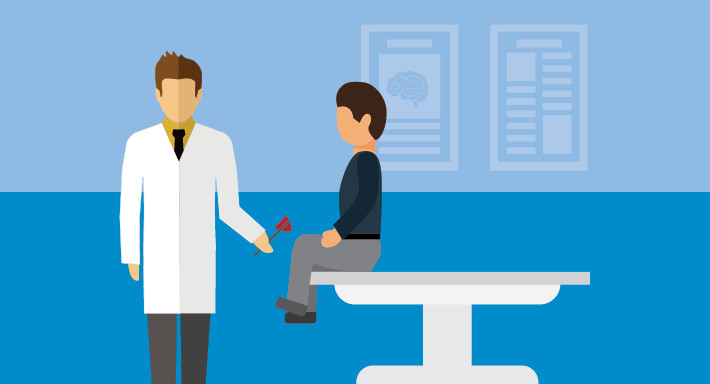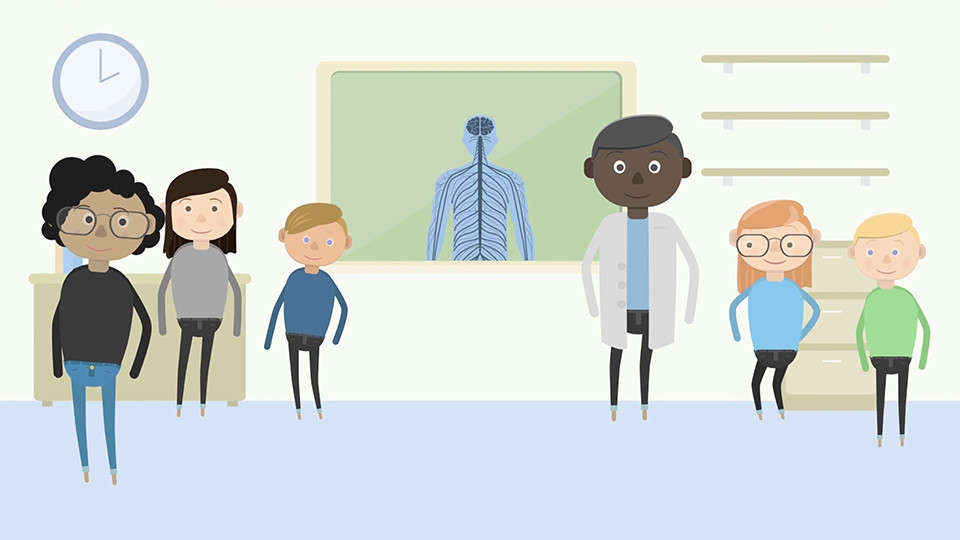A neurologist doctor is a medical expert who specializes in the diagnosis, treatment, and management of conditions affecting the brain and nervous system. These intricate systems control everything we do, from movement and speech to memory and emotions. Neurologists are equipped to handle a wide spectrum of neurological disorders, including debilitating conditions such as Alzheimer’s disease, amyotrophic lateral sclerosis (ALS), epilepsy, migraines, multiple sclerosis, Parkinson’s disease, stroke, and concussions.
For younger patients, a child neurologist, also known as a pediatric neurologist, focuses on neurological disorders in infants, children, and teenagers, from newborns up to adolescence. While some conditions overlap with adult neurology, child neurologists are also trained to diagnose and treat conditions unique to children, including neurogenetic and developmental disorders, alongside common ailments like migraines, epilepsy, stroke, and Tourette’s syndrome.
What Does a Neurologist Doctor Do?
Neurologists play a crucial role in patient care, primarily through expert diagnosis, utilizing advanced testing, and performing specialized procedures.
Diagnosis Through Neurological Exam
Neurologists are masters of clinical diagnosis. They are highly skilled in performing comprehensive neurological examinations. This involves taking a detailed patient history and conducting a thorough physical exam. This examination meticulously assesses various neurological functions, including mental status, vision, speech, strength, sensation, coordination, reflexes, and gait. Even with the advancements in medical technology, the neurological exam remains an indispensable tool for accurate diagnosis.
Utilizing Neurological Tests
To further aid in diagnosis and understand the complexities of neurological conditions, neurologists utilize a range of specialized tests. These may include:
- Computed Tomography (CT) or Computer-Assisted Tomography (CAT) scans: These imaging techniques provide detailed cross-sectional images of the brain and spinal cord.
- Magnetic Resonance Imaging (MRI): MRI scans offer even more detailed images, particularly useful for visualizing soft tissues of the nervous system with high precision.
- Electroencephalography (EEG): An EEG measures the electrical activity of the brain, crucial in diagnosing conditions like epilepsy and sleep disorders.
- Nerve Conduction Studies and Electromyography (NCS/EMG): These tests evaluate the function of peripheral nerves and muscles, helping diagnose nerve and muscle disorders.
- Lumbar Puncture (LP) for Cerebral Spinal Fluid Analysis: Also known as a spinal tap, this procedure collects cerebrospinal fluid for laboratory analysis, aiding in the diagnosis of infections, inflammation, and other conditions affecting the central nervous system.
Performing Specialized Procedures
While neurologists are not surgeons like neurosurgeons who perform brain or spinal cord surgeries, they do perform a variety of procedures and often collaborate closely with neurosurgeons in patient care, sometimes even working together during operations.
General neurologists routinely perform procedures such as lumbar punctures and NCS/EMG. Furthermore, neurologists with subspecialty training perform advanced procedures including intraoperative brain and spine monitoring to ensure patient safety during surgery, autonomic testing to assess the autonomic nervous system, endovascular procedures like angiograms and aneurysm coiling to treat blood vessel conditions, botulinum toxin injections for various neurological conditions, and nerve or muscle biopsies for diagnostic purposes.
 Global network of neurologists collaborating to improve brain health worldwide
Global network of neurologists collaborating to improve brain health worldwide
 Students and professionals involved in the Student Interest Group in Neurology (SIGN)
Students and professionals involved in the Student Interest Group in Neurology (SIGN)
 Neurologist performing a neurological exam on a child patient
Neurologist performing a neurological exam on a child patient
 Neurology's impact on education and understanding the nervous system in children
Neurology's impact on education and understanding the nervous system in children
In summary, a neurologist doctor is a highly trained specialist crucial for diagnosing, treating, and managing a vast array of nervous system disorders across all ages. Their expertise in clinical examination, advanced diagnostics, and specialized procedures makes them indispensable in modern healthcare.

